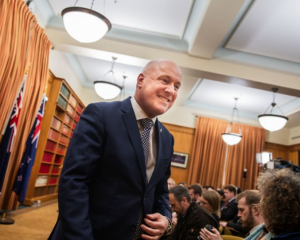
It is possible to view the activities of the Dunedin City Council with respect to a review of its vehicle fleet purchasing policies in just such a light - and deduce that this is yet another example of profligacy in service to the cult of management-by-consultancy, when a good dose of common sense would do better.
The DCC has 205 vehicles valued at $1.9 million managed by an inhouse entity called Citifleet. It costs council departments $2.163 million each year to lease vehicles from Citifleet. A significant proportion of this is made up of the council's water and waste services unit's requirements. It leases 76 vehicles at an annual cost of $921,000.
Until now the council has operated a buy-local policy for council vehicles. But a recent review of council fleet costs conducted by Auckland-based consultant Management Toolbox has resulted in 14 recommendations designed to save money - including an end to the council's buy-local policy. A "peer review" by FleetSmart, New Zealand's largest independent fleet management specialist, disagreed with ending the buy-local policy, saying savings would not be realised.
The council seems to be veering towards FleetSmart's position.
"Based on the peer review we're unlikely to change that policy," said council city environment general manager Tony Avery. "Clearly we need to make a decision, but if the peer review is right and we do actually get the same prices as if we bought nationally, then why would we change?
" Quite. Why for that matter, would one need to engage the doubtless expensive service of Auckland consultants to provide an opinion on the matter, and then, to make matters even worse and more costly, have the findings reviewed by another outfit?
Are there not qualified persons among the many hundreds of employees at city hall of sufficient education, experience and judgement to conduct such an exercise themselves?
While engaged in it they might, of course, consider factors other than the pure bottom line. For example, the health of the local car dealer sector and, particularly in difficult trading times, how the loss of substantial contracts might affect it. Were some to disappear from the market so too would their business rates to the city, and, quite possibly, those of some of their employees who might be forced to relocate. Unemployment leads to a loss of economic activity in general and losing a significant car dealership or two would have a depressive effect on the local economy. How ironic, but not unimaginable, if the DCC's economic development unit were then to be called in to look at creating conditions more conducive to local retail trading - through the requisite consultants' reports, of course.
According to local dealers, including Cooke Howlison managing director John Marsh whose company employs 110 people and contributes "hundreds of thousands of dollars" to community causes, the buy-local policy delivers price value to the council.
He was confident his company - four dealerships of which supply the council - would not be undercut. Prices of the company's Dunedin dealerships were "consistent" with those elsewhere - for example in Christchurch - and "the savings just aren't there to be had". The peer review seemed to endorse this position. The question is, how much of precious taxpayer funds was spent on a seemingly spurious cost-cutting exercise - the answer to which seems self-evident?
This is not to argue that cost savings with respect to the city's vehicle fleet cannot be made - they may just have to be made in other ways. In difficult debt-encumbered times, are the total fleet numbers sustainable? Are the models being purchased the most suitable and fit-for-purpose? How long are the vehicles held for? Are they bought new or are some acquired with a significant low mileage price depreciation?
All these are matters worthy of consideration, and there will be others.
Whether or not it requires two different sets of expensive external advice to come up with the answers is an entirely different matter.












